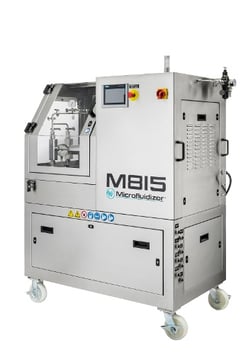The production of new biopharmaceuticals continues to expand at a rapid pace, and these cutting-edge products continue to command an ever larger share of the annual pharmaceuticals market. Because the market has grown so quickly, it makes sense to review some of the specifics regarding the biopharmaceutical manufacturing process.
For example, what is the difference between traditional pharmaceuticals and biopharmaceuticals? In short, biopharmaceuticals — sometimes referred to as biologics — are medicines synthesized not by chemists in laboratories, but in bioreactors by living organisms such as yeast, microbes or mammalian cells.
Biosynthesis Outstrips Traditional Chemical Synthesis
The biopharmaceutical manufacturing process harnesses biosynthesis, which tends to yield far larger, more complex molecules — proteins and nucleic acids — than are typically produced through traditional chemical synthesis. The first such molecule was recombinant human insulin, pioneered by Genentech in 1982. The success of this product arguably set the stage for today’s biopharmaceutical gold rush.
Initially, biopharmaceutical technology focused on the production of replacement proteins such as peptide hormones (erythropoietin, growth hormone, beta-interferon and reproductive hormones) or enzymes (such as tissue plasminogen factor). These biopharmaceutical molecules were enlisted for the treatment of conditions in which the absence of one of these molecules played a role in the etiology of a particular disease.
Recombinant insulin serves as a prime example. Type 1 diabetes occurs when the body loses its ability to manufacture insulin. The only viable treatment involves the regular, ongoing replacement of this key metabolic hormone. Once painstakingly extracted from animal sources, the development of recombinant human insulin solved several problems at once.
Advancing the War Against Cancer
More recently, biopharma has delved into the production of recombinant proteins that can serve as antibodies targeted at specific cellular receptors. These precisely targeted proteins have opened a new front in the war on cancer. By binding to specific antigens and carrying a toxic drug payload, for example, they can facilitate the immune system’s efforts to identify and destroy these dangerous, aberrant cells.
A number of successful anti-cancer drugs have benefited from this advance in technology, as they can be tailored to target specific tumor markers. This customized approach to cellular identification and elimination vastly improves efficacy, while significantly minimizing some of the harmful side effects of treatment.
Large-capacity bioreactors using mammalian cells are common now. However, the extraction of desirable molecular payloads requires manufacturing equipment capable of gently disrupting these cells and coaxing them to release their precious cargo without destroying the molecules themselves. This is where Microfluidizer® processors are so effective.
Microfluidics leads the industry in the design and manufacture of cGMP biopharmaceutical manufacturing processors. From benchtop R&D-appropriate machines, such as the M110P, to pilot scale machines, such as the M110EH or M815, to the production-scale M700 series of high-capacity processors, Microfluidics specializes in superior biopharmaceutical processing equipment that provides continuous, efficient, high shear processing.
Get More Information
For more information about our comprehensive line of Microfluidizer® processors for biopharmaceutical applications, contact us here, or fill out our Request-a-Quote form online. Our knowledgeable, skilled personnel stand ready to assist you in joining the biopharma revolution.
Topics:
Biopharmaceutical

